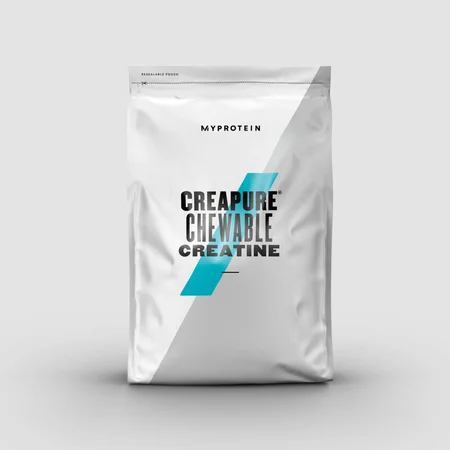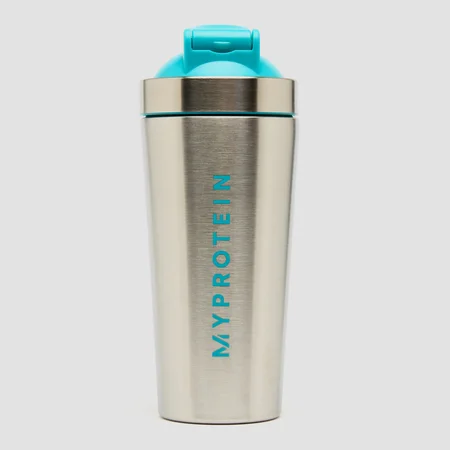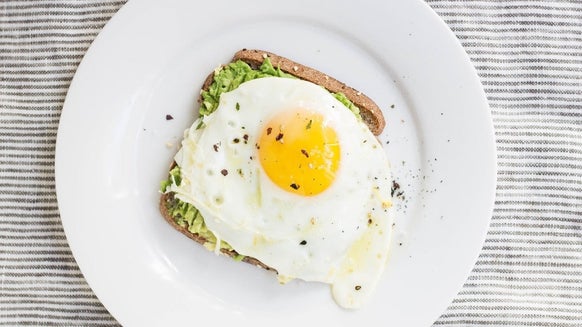What Is Creatine? | Benefits, Dosage & Side Effects


Creatine’s been getting quite the buzz lately. As a self-professed creatine fan, it’s great to see more people talking about it. But it’s also a shame to see so many false claims floating around social media. Misinformation could put people off a supplement with so many proven benefits.
The truth is, we know a lot about creatine. It’s probably the most-researched supplement there is, with countless studies investigating its effects across a wide array of groups, dosages and applications.
Consider this article your comprehensive guide to creatine, cutting through the noise to provide you with the facts: what it is, how it works, its benefits, the different types, and answers to frequently asked questions about it.
- What is creatine?
- How does creatine work?
- What does creatine do?
- Types of creatine supplements
- Benefits of creatine
- How to take creatine
- Timing of creatine consumption
- Dosage recommendations
- Potential side effects of creatine
- Creatine FAQs

What is creatine?
Creatine is a naturally occurring compound found in muscles and the brain that helps produce energy during high-intensity exercise, essentially acting as an “energy recycler”.
Supplementation has been shown to improve exercise performance, increase lean body mass and support recovery.1 It might even have a positive effect on mental health.1
How does creatine work?
Creatine works by increasing the availability of phosphocreatine in the muscles, which helps to regenerate adenosine triphosphate (ATP) — the primary energy source for muscle contractions during short, intense activities.1
During high-intensity exercise, like weightlifting or sprinting, ATP is rapidly depleted. Phosphocreatine helps replenish it, allowing muscles to sustain performance.
By boosting ATP production, creatine allows you to train harder for longer, improving strength, power and potentially muscle growth over time.
Additionally, creatine increases water retention in muscle cells, creating a more anabolic environment that supports recovery and muscle volume.

What does creatine do?
Creatine supports short bursts of intense activity by regenerating ATP, allowing muscles to continue contracting with force. Over time, this increased energy availability improves strength, power and muscle endurance.
Creatine also causes water retention in muscle cells, leading to increased muscle volume and a fuller appearance. This cell hydration aids protein synthesis, reduces muscle breakdown and supports recovery. Additionally, creatine influences cell-influencing pathways, such as the mTOR pathway, promoting muscle growth.2

Truth About Creatine 'Helping' Weight Loss | Nutritionist Reveals All
Yet more creatine myth-busting.
Types of creatine supplements
Creatine supplements come in many different forms, each with unique properties:
- Creatine Monohydrate: The most researched and widely used form, proven to increase strength and muscle mass. Requiring an initial loading phase followed by a maintenance dose, it’s affordable and effective.
- Creatine Hydrochloride (HCl): Known for enhanced solubility and absorption, often leading to less bloating and water retention.
- Buffered Creatine (Kre-Alkalyn): Marketed as more stable, said to minimise digestive discomfort, and supplemented without a loading phase.
Creatine Ethyl Ester: Claimed to have better absorption, though studies suggest it's no more effective than monohydrate.3 It may cause less water retention but more gastrointestinal issues. - Creatine Nitrate: Combines creatine with nitrate for potentially improved blood flow and endurance.
- Micronised Creatine: Creatine monohydrate processed into smaller particles for better absorption.
- Creatine Magnesium Chelate: Combines creatine with magnesium for potentially better recovery and ATP production.
This all said, creatine monohydrate remains the most cost-effective and well-researched option.3

Creatine Pills Vs Powder | Absorption Rates Don't Affect Effectivity
The choice is yours.
Benefits of creatine
Muscle mass and strength
Creatine supplementation promotes muscle growth by increasing ATP availability, allowing for longer and more intense training. It also supports protein synthesis and reduces muscle breakdown, leading to greater muscle size and strength over time.
Exercise performance
By boosting phosphocreatine levels, creatine allows for better performance during high-intensity exercises, improving power output and endurance. It’s ideal for sports like sprinting, weightlifting and interval training.
Recovery and glycogen teplenishment
Creatine speeds up the replenishment of muscle phosphocreatine stores and glycogen, crucial for sustained energy and promoting faster recovery between sets and workouts.
Brain function
Creatine is believed to benefit brain function by boosting ATP production in brain cells, potentially improving memory, reasoning and reducing mental fatigue.
Potential therapeutic effects
Creatine may reduce the risk of injury and aid injury rehabilitation. It’s also a useful supplement for older adults, helping to slow down age-related muscle loss while supporting improved cognitive health.

How to take creatine
The most effective way to increase muscle creatine stores is to ingest 5g of creatine monohydrate (or 0.3g/kg body weight) four times daily for 5-7 days. This is known as the "loading phase." After that, maintain creatine levels with a daily dose of 3-5g.
Alternatively, you can take 3-5g daily without loading, although muscle saturation will take a while longer.1
Timing of creatine consumption
Timing isn’t crucial for creatine’s effectiveness — consistency is key. Some evidence suggests a slight benefit to taking it post-workout, but the difference is minimal.

The Best Time To Take Creatine | Before Or After A Workout?
Discover the best time to supplement for the best results.
Dosage recommendations
Initially, you may choose to go through a “loading” phase to saturate your muscle creatine stores. After this, you’ll only need to take a reduced maintenance dose.
During the loading phase, take 5g of creatine monohydrate four times a day for 5-7 days. And during the maintenance dose, take 3-5g a day.
Potential side effects of creatine
Creatine is one of the safest supplements available to buy, with over 1,000 studies supporting its safety. Long-term use does not require cycling on and off.
Dehydration
Creatine can cause water retention in muscles, potentially pulling water from other areas of the body, which may increase the risk of dehydration. To combat this, stay well hydrated.
Digestive issues
Some people experience stomach discomfort when taking creatine supplements, especially when taking higher doses during the loading phase. If this is the case, spread multiple smaller doses throughout the day.

Creatine FAQs
Does creatine make you gain fat?
No, creatine does not make you gain body fat. While it does often lead to an initial increase in body weight, this is most likely due to water retention in the muscles.

Should I Use Creatine Whilst Cutting Fat?
Spoiler: Yes, and it can actually help your cut.
Does creatine cause hair loss?
There is limited evidence linking creatine to hair loss. One study on rugby players found creatine increased DHT levels, a hormone associated with hair loss, but more research is needed.4
Can creatine cause kidney damage?
There is no evidence suggesting that creatine can cause kidney damage in healthy individuals when taken as recommended.1 However, those with pre-existing kidney conditions should consult a healthcare professional before use.
Who should take creatine?
Creatine benefits a wide range of people, from athletes to older adults. It supports muscle strength, recovery and cognitive health, making it an excellent daily supplement.
Who should avoid creatine?
Creatine supplementation is not advised for people with pre-existing kidney conditions. Pregnant or breastfeeding women should also avoid due to limited research on its supplementation during these stages.

Take home message
Creatine is one of the most reliable and effective supplements available, with well-known benefits for performance. If you’re looking to give your training and recovery an extra edge, it’s a no brainer.
READ MORE HERE:

Creatine Loading Or Cycling? And How Much Per Day?
There are more approaches to creatine loading and cycling than you think.

How Creatine Is Made | In The Lab
The process behind this popular supplement.

Does Creatine Cause Weight Gain? | Your Questions Answered
Get to know this muscle building supplement.

Liam is a certified sport nutritionist with the International Society of Sport Nutrition and is enrolled on the British Dietetics Association’s Sport and Exercise Nutrition register. He has a Bachelor’s of Science in Sport and Exercise Science and is graduate of the ISSN Diploma in Applied Sport and Exercise Nutrition.
Liam is an experienced personal trainer, helping clients reach their health and fitness goals with practical, evidence informed exercise and nutrition advice. In his spare time Liam has competed in numerous powerlifting competitions and enjoys hill walking, football and expanding his recipe repertoire in the kitchen.Find out more about Liam's experience here.










